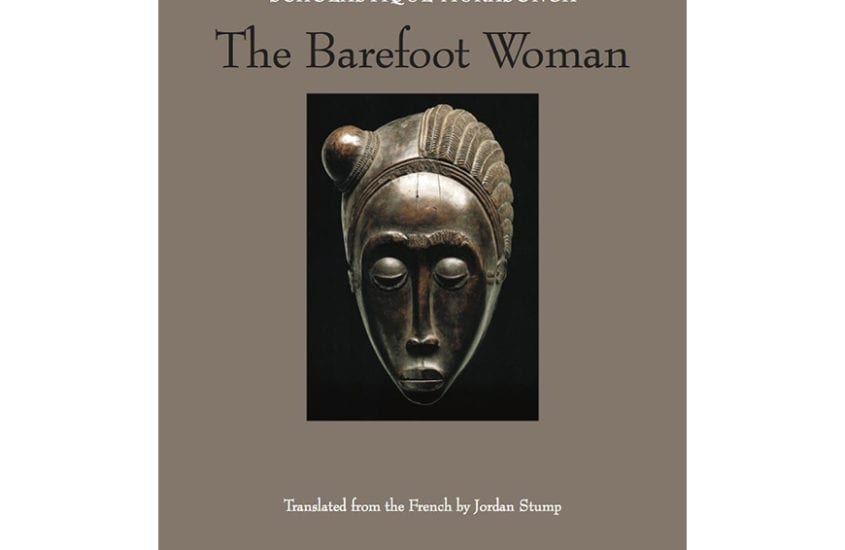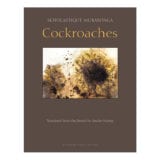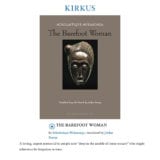Traduction: The Barefoot Woman

‘The Barefoot Woman’, la traduction américaine de ‘La femme aux pieds nus’ par Jordan Stump, est disponible aux État-Unis chez l’éditeur Archipelago Books.
Commandez le livre sur Amazon | Barnes & Noble | Librairie
Présentation de l’éditeur:
The Barefoot Woman is Scholastique Mukasonga’s loving, funny, devastating tribute to her mother Stefania, a tireless protector of her children, a keeper of Rwandan tradition even in the cruelest and bleakest of exiles, a sage, a wit, and in the end a victim, like almost the entire family, of the Rwandan genocide. But it’s also a wry, sharp-eyed portrait of the world her mother lived in, from its humblest commonplaces (beer, sorghum, bread) to its deepest horrors (rape, murder, unimaginable loss).
In a telling both affectionate and haunted, Mukasonga sinks her feet into this dense “land of stories.” Each step, each verse of her careful lament carries both the weight of her mourning and the fortitude of the myriad silenced voices she speaks for. Whether describing the dry, cracked layers of mud on her mother’s feet, or the stretch marks that line strong legs, Mukasonga follows the threaded rivulet of her mother’s pulsing memory.
Review:
The Barefoot Woman is simultaneously a powerful work of witness and memorial, a loving act of reconstruction, and an unflinching reckoning with the Rwandan Civil War. In sentences of great beauty and restraint, Mukasonga rescues a million souls from the collective noun ‘genocide,’ returning them to us as individual human beings, who lived, laughed, meddled in each other’s affairs, worked, decorated their houses, raised children, told stories. An essential and powerful read.— Zadie Smith
Mukasonga is a master of subtle shifts in register — a skill inherited, perhaps, from the Rwandan traditions of intricate courtesy and assiduous privacy that Stefania maintained. She turns everything over restlessly: In her prose, poignant reminiscences sharpen into bitter ironies, or laments reveal flashes of comedy, determination, defiance.— Julian Lucas, The New York Times
The Barefoot Woman moves effortlessly from moments of lyrical and pastoral beauty to evocations of tragic events in the past and future. That the tone can be at once heartwarming and elegiac is a testament to Mukasonga’s talent as a writer. This is a work of nonfiction that immerses the reader in emotion and memory, a haunting and experiential volume.— Tobias Carroll, Words Without Borders
Radiant with love…The Barefoot Woman powerfully continues the tradition of women’s work it so lovingly recounts. In Mukasonga’s village, the women were in charge of the fire. They stoked it, kept it going all night, every night. In her work — six searing books and counting — she has become the keeper of the flame.— Parul Sehgal, The New York Times
The Barefoot Woman is an elegiac tribute by Scholastique Mukasonga both to her mother, Stefania — the focal point of the book — and to what life was like for Tutsi residents in Rwanda before the devastating 1994 genocide … Ultimately, The Barefoot Woman is meant to serve as its own marker, not only of the atrocities that have been committed but also of the people these acts attempted to erase. — Li Zhou, Vox
I loved the sharpness of Mukasonga’s eye, the graceful construction of her chapters, the way a story wrapped up in unimaginable loss is told with a little smile, and the way in which that smile sometimes abruptly disappears.— Jordan Stump, Asymptote
The Barefoot Woman shines attention on a person who might otherwise be overlooked.— Gregory Cowles, The New York Times
The Barefoot Woman is lyrical but also informative and ethnographic, as much a memoir of a mother as it is of her way of life. … Mukasonga has done far more than remembering and recognizing the human beings she grew up with; she has immortalized them.— Helen Epstein, The Arts Fuse
The Barefoot Woman is an important book. It’s a work of memory, and a refusal of disappearance. Quietly, lovingly, Scholastique Mukasonga brings her mother back to life, back from the 20th century’s last genocide, the slaughter of the Tutsis by the Hutus. As The Barefoot Woman tells us how her mother lived, it strikes back at the silence every genocide seeks to impose.— Gaël Faye
The Barefoot Woman is a living-record document, the voice of culture, tradition, and hope as well as a representation of the history lived by a group of Tutsi during the Rwandan genocide. It is a great performance where language has the stage, where words are revered and carefully chosen.— Andreea Gabudeanu, World Literature Today
This is an important book written for a strong and loving woman.— Elizabeth Rowe, Bookish
Ever clear and laudable…is Mukasonga’s consistent portrayal of her mother as a guardian of the family and of Rwandan lore and customs in the deadly wake of expulsion and exile. No doubt, this small book – an unevenly woven « shroud » – bears an unimaginably heavy weight.— Angela Ajayi, The Star Tribune
The fiercest of wars are fought by so many invisible heroes. The boldest of warriors will take on hell, descend into its depths, armed with a fiery love and set it differently alight. And even though this is a threnody, it is also a soaring story of grace, of faith, family, friendship, in-betweenness, and keeping just one nightmare away from the bogeyman; of Stefania who lived beyond boundaries, including those limits defined by those who would, and did, destroy a body, but never, oh no, not ever the dauntless soul of this, the most intrepid of mothers, a woman who drank fully of life, with a love that throbs through ever word in this epigrammatic book. A daughter’s lyrical tribute, The Barefoot Woman is a resonant revelation. — Yvonne Adhiambo Owuor
A loving, urgent memorial to people now ‘deep in the jumble of some ossuary’ who might otherwise be forgotten in time.— Kirkus Reviews, starred review
Extraordinarily, this story is at times horrifying in its content and at other times playful; lyric in its style and tender in its handling of the central character. While the reader’s knowledge of the genocide to come hangs over the narrative, the everyday events often retain a quotidian feeling; Stefania and her neighbors worry over their children but also laugh and celebrate and arrange marriages. As a literary work, this establishes a rare balance. Jordan Stump’s translation from the French beautifully conveys this sense of both tragedy and day-to-day joy.— Shelf Awareness
The Barefoot Woman engrosses the reader in the dazzling beauty of the Tutsi culture. Mukasonga’s narrative is laced with heartwrenching reminders that the lively inhabitants of these memories are no more. Her words are vivid and raw as she provides a humbling glimpse into her Rwandan childhood, reminding us to take nothing for granted, to hold our loved ones close simply because we have the privilege to. Mukasonga roots this gentle memoir in images of her mother; each word is a precious gift that manifests this woman’s strong will, her ferocious love, and the dreams of the future she envisioned for her children. With this book, Mukasonga has woven a unique shroud for her mother – one that does not hide her but reveals her, eternal, the glowing fire in the center of her family’s home.— Kaitlyn Radel, bookseller at Oxford Exchange
The genocide and the violence always lurks at the edges of this tale, but by forcing it to the margins and concentrating on the ways in which life and hope emerged through and despite that violence, Mukasonga makes a critically important contribution to the literature of Rwanda and of humanity alike.— Hans Rollmann, Pop Matters


